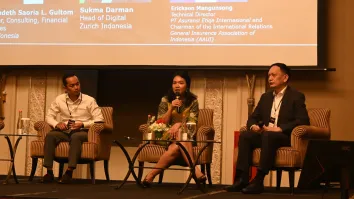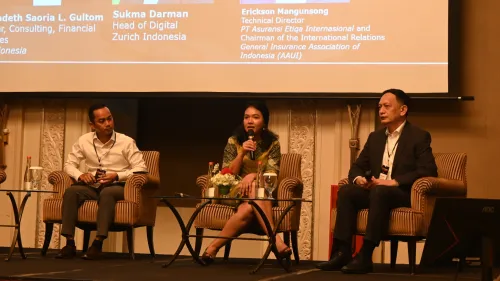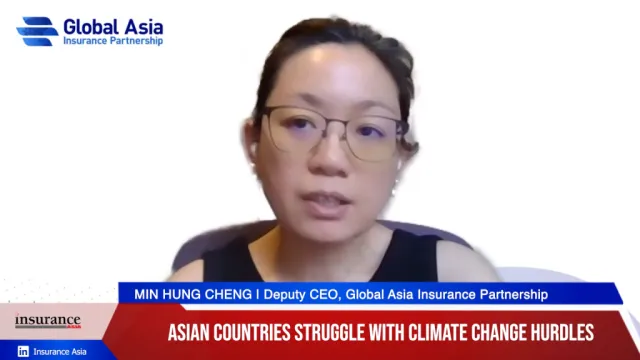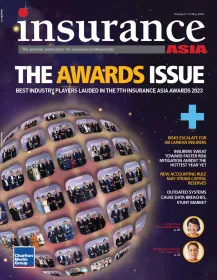
Inflation hits non-life insurance hard, property and motor sectors face uphill battle: Malaysian Re
The main impact of inflation on insurers' balance sheets is likely to be an increase in claims costs.
The impact of inflation is notably pronounced in non-life insurance, with property and motor sectors expected to be the hardest hit for Asia’s insurers. As global insurance markets grapple with the effects of an economic downturn coupled with high inflation, several challenges have emerged. Demand for insurance tends to decline during economic slowdowns, and insurers and reinsurers face increased liabilities due to obligations to policyholders, according to Malaysian Re’s Asean Insurance Pulse 2023 report.
These liabilities, arising from insurance policies, become more significant as inflation rises, potentially leading to higher claims payments for insurers.
The main impact of inflation on insurers' balance sheets is likely to be an increase in claims costs, particularly in non-life insurance, as opposed to life insurance where benefits are pre-defined.
The property and motor vehicle sectors are anticipated to face the most significant challenges. Supply chain disruptions and labour shortages in the construction sector have driven up repair and rebuilding costs, resulting in increased insurance claims. Similarly, the motor insurance industry is experiencing escalating claims costs due to component shortages, keeping new and used car prices historically high. The impact extends beyond these sectors, affecting personal accidents, motor liability, and general liability.
Rising inflation is also impacting bodily injury claims, requiring insurers to understand inflation fundamentals in their respective markets and take strategic steps to rebalance their financial base and recalibrate reserve management procedures.
ALSO READ: Swiss Re: Asia’s insurance players target health industry in 2024
As of the IMF's May 2023 Regional Economic Outlook for Asia and the Pacific, there are indications that inflationary pressures are showing signs of easing both within Asia and on a global scale.
Throughout Asia, the trajectory of inflation has been gradually moderating since the middle of 2022. This trend is attributed to the decline in commodity valuations and reduced transportation costs.
Simultaneously, the primary driver of headline inflation in Asia has shifted towards increasing core inflation, aligning with a broader global pattern. Notably, core inflation in the majority of Asian economies persists above central bank benchmarks, albeit at a more measured pace compared to the global scenario.
The acceleration in Asian core inflation gained momentum in the latter half of 2022, coinciding with the gradual relaxation of COVID-19 containment measures in the region. This easing facilitated heightened mobility and stimulated domestic demand, particularly noticeable in emerging markets, excluding China.
Swiss Re reports that soaring inflation rates have already affected property and casualty (P&C) insurers, leading to increased claims payouts. Inflation, in isolation, has raised P&C claims payouts by 5% to 7.5% in selected global markets over the period to 2022, with projections indicating an additional increase of 3.5% to 6.5% in 2023.
In the property sector, highly sensitive to inflation and rising construction costs, Swiss Re estimates an increase in claims payouts of 6% to 13%. The ongoing evolution of the industry is expected to continue in 2023, with signs of gradual moderation in the development of property and casualty claims.
Inflation also impacts the investment returns of insurers and reinsurers, with interest rates in Asia rising more gradually than in the West. Most insurers and reinsurers in ASEAN hold a significant portion of their investment portfolios in cash and fixed-income securities. Rising inflation can erode the purchasing power of cash and reduce the real value of fixed-income investments.
Real estate assets held by insurers and reinsurers may see changes in value due to inflation affecting property prices, construction costs, and maintenance expenses. Equity investments may also be influenced by inflation expectations, impacting investor sentiment, market volatility, and corporate earnings, thereby affecting the fair value of equity investments held by insurers and reinsurers.



















 Advertise
Advertise






